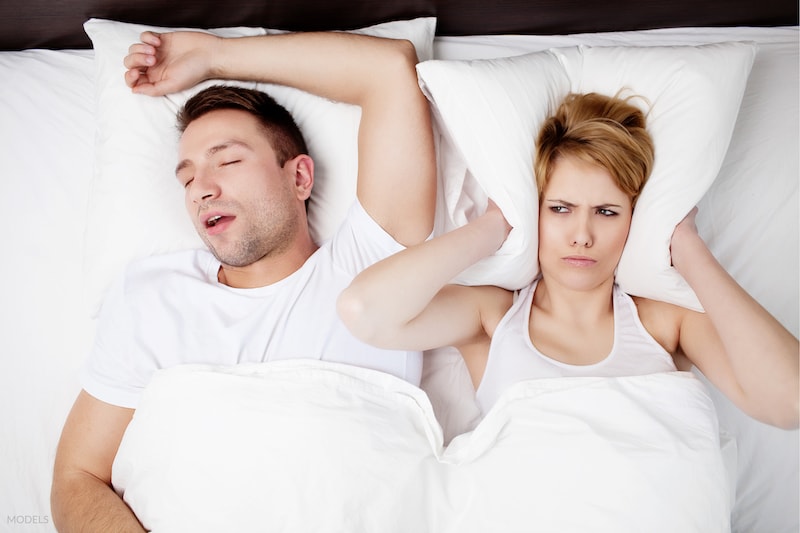Do Sleep Apnea Home Remedies Work?
3 Minute Read:
Sleep apnea occurs when the airways become blocked while a person is sleeping. Obstructions in the oral cavity, such as the tonsils, soft palate, and even the tongue, can significantly block the airways responsible for normal breathing patterns.

Some patients may be surprised to discover how interconnected our dental health can be with healthy sleeping habits. Oral signs of sleep apnea can manifest as acid reflux disease, macroglossia (a swollen tongue), and bruxism (teeth grinding).
How Do You Fix Sleep Apnea?
Sleep apnea is a serious condition that can cause many long-lasting health issues. While professional oral devices are always recommended to correct sleep apnea issues, patients will be pleased to find that the right at-home remedies may also help.
Here is a brief guide to professional and at-home treatments to make sleep peaceful and relaxing.
Professional Solutions for Sleep Apnea
How Can a Mouthpiece Help My Sleep Apnea?
Fortunately for those seeking simple solutions to their breathing issues while sleeping, Dr. Fiss offers an anti-snore oral device called the Thornton Adjustable Positioner (TAP). The TAP device can increase the airway space and reduce air velocity, soft tissue vibration, and snoring by up to 85 percent without the cumbersome and awkward fitting of a CPAP machine.
Even if you already have a TAP mouthpiece, you might find that at-home remedies can enhance the successful results from your TAP device. Here are some healthy activities that will help ease sleep apnea from the comfort of your own home.
Home Remedies for Sleep Apnea
How Can Yoga Help My Sleep Apnea?
Studies have shown that disciplined and consistent yoga practice can dramatically improve the quality of your sleep. Yoga can help those who experience sleep apnea to fall asleep quicker and for longer durations. Yoga breathing exercises can also strengthen the muscles responsible for breathing, helping patients relax and easily open the muscles that often block the air passage.
How Can Humidifiers Help My Sleep Apnea?
Humidifiers are favorable for those who struggle with sleep apnea or sleep disorders because of their ability to add moisture to the surrounding air. By eliminating the dry air that can irritate the respiratory system, patients can get rid of one of the many factors that exacerbate their sleep apnea concerns. With regular use, a humidifier can open a patient’s airways, decrease congestion, and promote easier breathing.
How Can Plants Help My Sleep Apnea?
Plants are also a great help to patients who experience sleep apnea. Known as mother nature’s air purifiers, plants such as Aloe vera and Snake plants can remove harmful toxins and bacteria from the air that would otherwise obstruct sleep.
How Can Music Help My Sleep Apnea?
Everyone has heard of putting on the sound of crashing waves or showers of rain to drift gently to sleep, but what about music? Recent behavioral science studies on music therapy have concluded that music appears to be viable in aiding acute and chronic sleeping disorders. While larger studies still need to be conducted, music therapy has been noted to slow the heart rate, lower blood pressure, and cause muscles in the body to relax. All of these health factors can help promote quality sleep.
Interested in Learning More Ways to Fix Sleep Apnea?
Despite the benefit of at-home solutions for sleep issues and sleep apnea, your condition may be the result of more serious dental health concerns that require professional attention. By visiting a certified dentist like Dr. Fiss, you can receive a professional assessment to better understand your sleep apnea.
For more information on sleep apnea, contact Dr. Fiss by filling out our online contact form or calling (312) 642-6631.